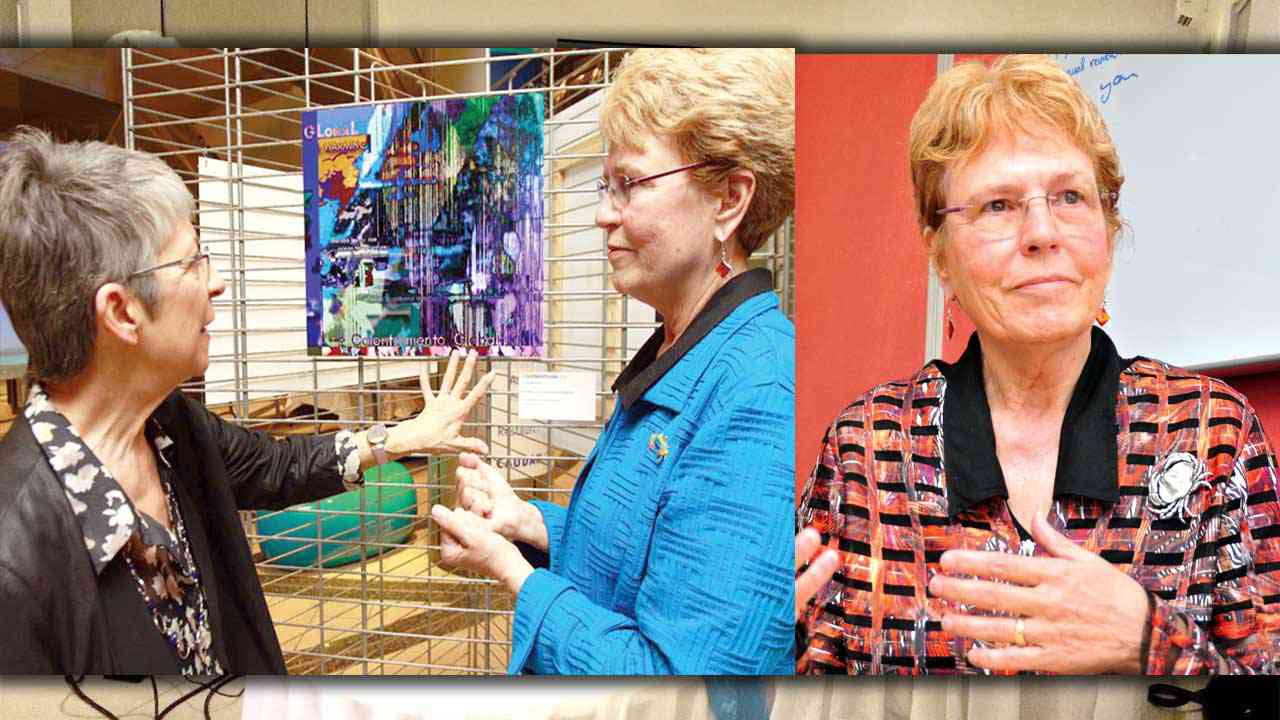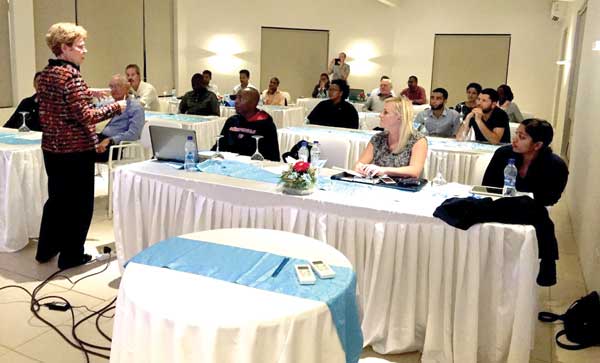
Dr Jane Lubchenco, US Science envoy for the Ocean was recently in Mauritius to interact with relevant authorities on the relevance of ocean protection. Speaking to News on Sunday, she stresses on the necessity for countries not to repeat mistakes of the past. Her message is crystal clear – use but do not abuse of the oceans.
“As a US Science envoy, my present mission here is to focus on the scientific relevance to the ocean,” she says. The specialist explains that the oceans are changing in very drastic ways with the sea level constantly rising, the oceans getting warmer and storm tracks.
“The oceans are becoming more acidic and holding less oxygen. The question is does it matter how this phenomena impacts the lives of people? Scientific information can make us understand what is happening in the oceans as well on the land and how our activities affect that, and can it make worse or better”.

For Dr Lubchenco, it is important that at this point in time, we to look for alternatives and not to repeat the mistakes of the past but instead we do not take into account the scientific information that can help us use the oceans without using it up.
During a first visit to Mauritius last year, Dr Lubchenco says she noted a lot of interest in exploring the blue economy – the ocean economy. “I listened to many people from government, private sector, the university, young students. A year later I reconnected with them. I think that some progress that has been made, especially with the setting up of a new ocean science faculty at the University of Mauritius. It is a good step in the right direction. However, planning and implementation of strategies are equally and critically important.”
She also says that the new national ocean council recently set up needs to be empowered to think about sustainable uses of the oceans. “My role is to trade information, shed light on the importance of science and the oceans and engage with young scientists who help create the future. I have been very impressed with young Mauritian scientists. They are bright, passionate, eager to learn and it’s my hope that they will be empowered by the older generation to help create the future. Many of the young scientists feel concerned about the opportunities available for them. I told them that they needed to seek the opportunities and things will happen. I really believe they have a tremendous amount to offer to the country.”
Dr Lubchenco also believes that each and everyone can help in this laudable endeavour. “I think it’s important for Mauritians to connect in a personal way with the ocean. Get into the water, see what is beneath the waves... care about life in the oceans and understand what they can provide to us. Take care of the system so that they can take care of us”
Bio
Jane Lubchenco, 69, is an American environmental scientist and marine ecologist who became the first woman to serve as administrator of the National Oceanic and Atmospheric Administration (NOAA) and as Undersecretary for Oceans and Atmosphere (2009–13). She is presently a University professor and advisor in Marine Studies at the Oregon State University (OSU). She is also the US Science Envoy for the Ocean attached to the US Department of State.
Acidification of the oceans
Dr Lubchenco also speaks of a new phenomenon: acidification of the oceans that is affecting the reefs, a natural habitat for fish. “This phenomenon already has had very serious economic consequences in other parts of the world. It not just something hypothetical. We need to have good measurements to mitigate the impact.”
According to Dr. Jane Lubchenco, the oceans are now 30% more acidic than 150 years back. A relatively new problem, it differs from one place to another. She admits that there are not much information pertaining to the seas around Mauritius but it’s never too late to learn.
Dr Lubchenco says: “Political will is absolutely needed to do the right smart things. Authorities have to understand what the trade offs are, strike the right balance and make the good choices.” In Mauritius, she says, the good signals are here with the setting up of the National Ocean Council. “I would hope that this interest is not just in the short term.” She also makes a plea for regional cooperation and networking.
 J'aime
J'aime














